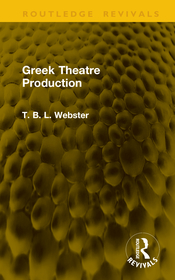
The Eco-Self in Early Modern English Literature
Sorozatcím: Environmental Humanities in Pre-modern Cultures;
-
20% KEDVEZMÉNY?
- A kedvezmény csak az 'Értesítés a kedvenc témákról' hírlevelünk címzettjeinek rendeléseire érvényes.
- Kiadói listaár GBP 42.99
-
20 538 Ft (19 560 Ft + 5% áfa)
Az ár azért becsült, mert a rendelés pillanatában nem lehet pontosan tudni, hogy a beérkezéskor milyen lesz a forint árfolyama az adott termék eredeti devizájához képest. Ha a forint romlana, kissé többet, ha javulna, kissé kevesebbet kell majd fizetnie.
- Kedvezmény(ek) 20% (cc. 4 108 Ft off)
- Kedvezményes ár 16 430 Ft (15 648 Ft + 5% áfa)
Iratkozzon fel most és részesüljön kedvezőbb árainkból!
Feliratkozom
20 538 Ft

Beszerezhetőség
Még nem jelent meg, de rendelhető. A megjelenéstől számított néhány héten belül megérkezik.
Why don't you give exact delivery time?
A beszerzés időigényét az eddigi tapasztalatokra alapozva adjuk meg. Azért becsült, mert a terméket külföldről hozzuk be, így a kiadó kiszolgálásának pillanatnyi gyorsaságától is függ. A megadottnál gyorsabb és lassabb szállítás is elképzelhető, de mindent megteszünk, hogy Ön a lehető leghamarabb jusson hozzá a termékhez.
A termék adatai:
- Kiadás sorszáma 1
- Kiadó Routledge
- Megjelenés dátuma 2025. december 1.
- ISBN 9781041187745
- Kötéstípus Puhakötés
- Terjedelem238 oldal
- Méret 234x156 mm
- Nyelv angol 700
Kategóriák
Rövid leírás:
Through analysis of Shakespeare, Marlowe, Webster, and Cavendish, the author reveals how this reconceptualized selfhood offered ecological benefits by valuing human rational capacities while maintaining environmental connection.
TöbbHosszú leírás:
The Eco-Self in Early Modern English Literature tracks an important shift in early modern conceptions of selfhood, arguing that the period hosted the birth of a new subset of the human, the eco-self, which melds a deeply introspective turn with an abiding sense of humans’ embedment in the world. A confluence of cultural factors produced the relevant changes. Of paramount significance was the rapid spread of literacy in England and across Europe: reading transformed the relationship between self and world, retooled moral reasoning, and even altered human anatomy. This book pursues the salutary possibilities, including the ecological benefits, of this redesigned self by advancing fresh readings of texts by William Shakespeare, Christopher Marlowe, John Webster, and Margaret Cavendish. The eco-self offers certain refinements to ecological theory by renewing appreciation for the rational, deliberative functions that distinguish humans from other species.
TöbbTartalomjegyzék:
Introduction: Ourselves Our Renaissance. The Verdancy of Critical Practice, Chapter 1: The Verdant Imagination in Shakespeare's Sonnets, Chapter 2: The Intermediating Self in Doctor Faustus, Chapter 3: Resisting Self-Erasure in Antony and Cleopatra, Chapter 4: Wrestling with the Eco-Self in The Duchess of Malfi, Chapter 5: Ecology and Selfhood in The Blazing World, Bibliography, Index.
Több




